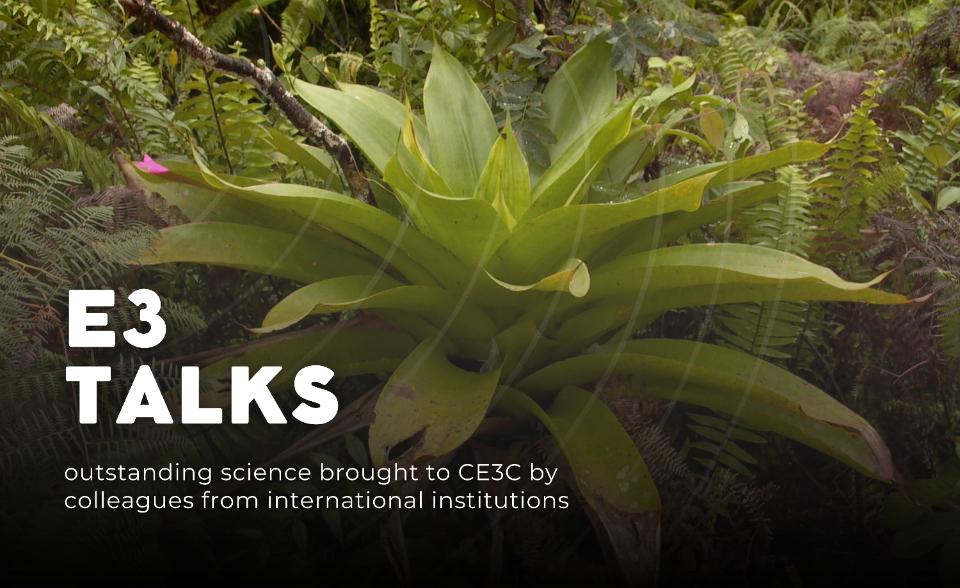-
Date:
30 Mar 2023
-
Location:
Room 2.2.14 - Faculty of Sciences of the University of Lisbon
-
Schedule:
12h00 (Lisbon time)
-
Lecturer or Responsible:
Diane Srivastava

Online access • LINK
Password • 217663
Food webs are affected by the space around them, but ecological models struggle to capture the coupling of spatial and trophic processes. Trophic metacommunity theory proposes to unite traditional metacommunity theory and food web theory.
To illustrate the potential processes underlying trophic metacommunity theory, we will look at empirical patterns in the aquatic invertebrate food webs in tropical bromeliads. Using observations, experiments and simulations, I will show that these patterns depend on the interactions between key trophic metacommunity processes: stochasticity, niche differences, spatial movement, predator functional responses, and spatial information processing.
We have been experiencing some technical issues regarding the authentication/connection to the Zoom platform through FCCN. For that, we apologise for any difficulties during the transmission.
Diane Srivastava's short bio

Diane Srivastava is a Distinguished University Professor at the University of British Columbia and Director of the Canadian Institute of Ecology and Evolution. Her research encompasses community ecology, climate change biology, tropical conservation, data syntheses, and equity in science.

